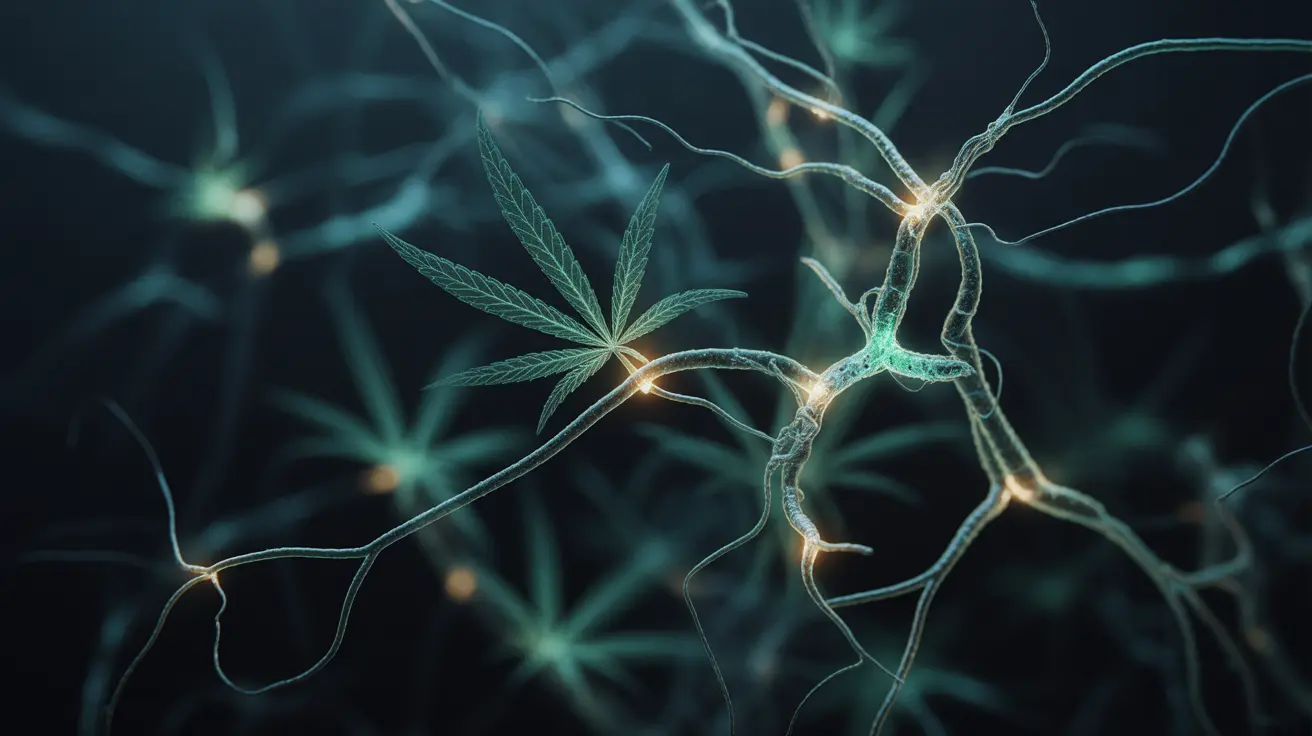As cannabis products become increasingly accessible, many people are turning to edibles as an alternative consumption method. However, questions about the relationship between marijuana edibles and nerve health have emerged, particularly regarding potential risks and benefits. Understanding how these products interact with our nervous system is crucial for making informed decisions about their use.
This comprehensive guide explores the complex relationship between cannabis edibles and nerve health, examining both potential benefits and risks while addressing common concerns about neuropathy and long-term neural effects.
The Science Behind Cannabis and Nerve Interaction
Cannabis contains various compounds that interact with the body's endocannabinoid system, which plays a crucial role in nerve function and pain signaling. The two primary compounds, THC (tetrahydrocannabinol) and CBD (cannabidiol), affect nerve cells differently and can influence various aspects of neural health.
How Edibles Process in the Body
When consuming cannabis through edibles, the compounds are processed differently compared to smoking or vaping. The digestive system metabolizes THC into a more potent form called 11-hydroxy-THC, which can cross the blood-brain barrier more effectively. This process results in longer-lasting effects but also different potential impacts on nerve tissue.
Potential Effects on Nerve Health
Research suggests that cannabis's relationship with nerve health is complex and multifaceted. While some studies indicate potential neuroprotective properties, others highlight possible risks that users should consider.
Neuroprotective Properties
CBD has shown promise in protecting nerve cells from damage and inflammation. Some research indicates it may help maintain nerve health and potentially slow the progression of certain neurological conditions. However, more research is needed to fully understand these protective mechanisms.
Risk Considerations
While direct nerve damage from cannabis edibles is not commonly reported, certain risk factors should be considered:
- Temporary sensory changes
- Potential interactions with medications
- Effects on blood circulation
- Impact on existing neurological conditions
Therapeutic Applications for Neuropathic Pain
Many individuals use cannabis products, including edibles, to manage neuropathic pain. The compounds in cannabis may help modulate pain signals and reduce inflammation, potentially offering relief for some patients with chronic nerve pain conditions.
Comparing Consumption Methods
The method of cannabis consumption can significantly impact its effects on nerve health. Edibles provide longer-lasting effects but with delayed onset compared to smoking. This delayed absorption may influence how the compounds interact with nerve tissue and pain receptors.
Vascular Health and Long-term Considerations
The relationship between cannabis consumption and vascular health can indirectly affect nerve function. Edibles may present different risks and benefits compared to smoking:
- Reduced respiratory risks compared to smoking
- Different patterns of cardiovascular effects
- Potential impact on blood flow to nerve tissue
- Longer duration of active compounds in the system
Frequently Asked Questions
Can marijuana edibles directly cause nerve damage or neuropathy? Current research does not indicate that marijuana edibles directly cause nerve damage or neuropathy. However, individual reactions can vary, and certain pre-existing conditions may be affected by cannabis use.
How does THC affect nerve health compared to other methods of marijuana consumption? When consumed as edibles, THC is metabolized differently, producing stronger and longer-lasting effects. This metabolic process may result in different interactions with nerve tissue compared to smoking, though direct comparative research is limited.
What are the benefits and risks of using cannabis, including edibles, for treating neuropathic pain? Benefits may include pain relief and reduced inflammation, while risks can include temporary cognitive effects, potential drug interactions, and varying individual responses. The controlled dosing of edibles can be both beneficial and challenging for pain management.
Are there any long-term risks to vascular health from consuming marijuana as edibles versus smoking? Edibles eliminate the respiratory risks associated with smoking but may still affect vascular health through other mechanisms. Long-term studies comparing the vascular effects of different consumption methods are still ongoing.
How does CBD in cannabis products impact nerve health, and are there any neuroprotective benefits? CBD has shown potential neuroprotective properties, including reducing inflammation and oxidative stress in nerve tissue. Research suggests it may help protect nerve cells and support overall neural health, though more studies are needed to confirm these benefits.




